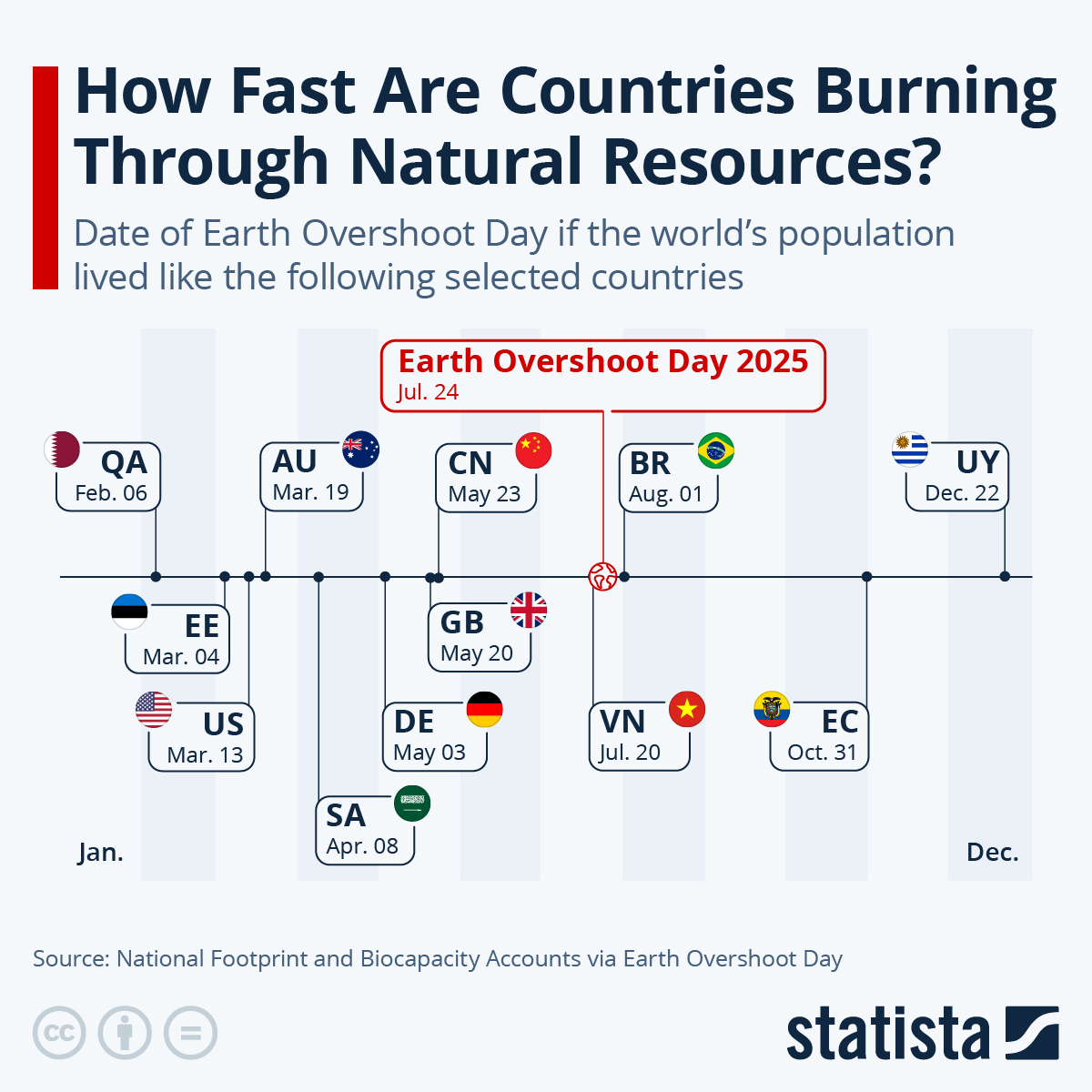Each year, humans use more natural resources and pour more CO2 into the atmosphere. Today, humans used up the planet’s capacity to support life for the year. After falling earlier every year, including on July 29 during 2021, in 2023 humans managed consume and pollute a bit more slowly.
Earth Overshoot Day marks the day when “humanity’s demand for ecological resources and services in a given year exceeds what Earth can regenerate in that year.” 1970 was the last year when resources lasted the entire year. We mark this day with a commitment to continue to reduce our carbon footprint personally and to share more ideas about how to reduce yours.
Nations contribute to overshoot at different rates. Qatar, a petro-state, for example, used up its share of planetary resources by February 10th. But the United States was close behind, hitting overshoot on March 13th. Americans living today have borrowed nine-and-a-half months from future generations during 2023.

Could we push Earth Overshoot Day back to Dec. 31 by 2030 or 2040 if we all pull together? That’s a goal most people could get behind after the hottest month in recorded history.
Will our legacy be the curse of extreme heat and other disastrous impacts or that we turned around our impact and began to reverse climate and environmental damage? Our descendants will judge us, even if we think we can excuse ourselves because it’s just too much trouble to make changes.
Consider Lowering Your Environmental Impact Starting Today
You have habits built during an era that did not recognize how humans have reshaped the planet’s atmosphere and ecosystems. But we know better now, and there are easy and often inexpensive or money-saving ways to make a change.
Skip meat at breakfast and lunch, it can lower your dietary carbon footprint by as much as 50%.
Buy an electric vehicle or bike and walk to work, which can reduce your greenhouse gas emissions dramatically. The benefits of using an EV depend in part on how your local electricity is generated, and we have a worksheet to help estimate your potential improvement.
Go solar at home by investing in panels or buying green electricity through renewable energy credits and if you cannot, set your thermostat at 75 degrees or higher during the summer and as low as you can tolerate comfortably during the winter, preferably at 64 degrees or lower.
Use less water in your yard and home. You can easily reduce your water use by thousands of gallons a year.
Please take the bad news about the earliest-ever Earth Overshoot Day as an opportunity to change. These steps are the low-hanging fruit of sustainable living. Once you’re ready for the next step, we’re here to help.
Editor’s Note: This story was updated on August 2, 2023, to reflect the current year’s Earth Overshoot Day.

